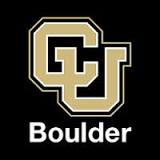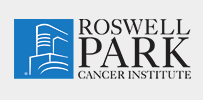Erlotinib With or Without IMC-A12 in Treating Patients With Stage III or Stage IV Non-Small Cell Lung Cancer
| Status: | Archived |
|---|---|
| Conditions: | Lung Cancer, Cancer |
| Therapuetic Areas: | Oncology |
| Healthy: | No |
| Age Range: | Any |
| Updated: | 7/1/2011 |
| Start Date: | October 2008 |
A Randomized Phase II Cross Over Study With a Safety Lead In of the Anti-IGF-1R Monoclonal Antibody IMC-A12 in Combination With Erlotinib Compared With Erlotinib Alone in Patients With Advanced Non-Small Cell Lung Cancer (NSCLC) Who Have Failed At Least One Platinum Containing Chemotherapy Regimen.
RATIONALE: Erlotinib may stop the growth of tumor cells by blocking some of the enzymes
needed for cell growth. Monoclonal antibodies, such as IMC-A12, can block tumor growth in
different ways. Some block the ability of tumor cells to grow and spread. Others find tumor
cells and help kill them or carry tumor-killing substances to them. It is not yet known
whether erlotinib is more effective when given together with or without IMC-A12 in treating
non-small cell lung cancer.
PURPOSE: This randomized phase I/II trial is studying the side effects and best dose of
IMC-A12 and to see how well erlotinib works when given together with or without IMC-A12 in
treating patients with stage III or stage IV non-small cell lung cancer.
OBJECTIVES:
Primary
- To determine a tolerable dose of anti-IGF-1R recombinant monoclonal antibody IMC-A12
(IMC-A12) in combination with erlotinib hydrochloride in patients with stage IIIA,
IIIB, or IV non-small cell lung cancer.
- To determine the difference in progression-free survival of these patients when
administered erlotinib hydrochloride with vs without IMC-A12.
Secondary
- To evaluate the safety, tolerability, and adverse event profile of IMC-A12 when
administered in combination with erlotinib hydrochloride in these patients.
- To describe preliminary evidence of clinical activity of these regimens in these
patients.
- To determine the difference in overall response rate between the two treatment arms in
these patients.
- To determine the response duration in patients who achieve an objective response in
these regimens.
- To describe the response rate, time to disease progression, and response duration in
patients who cross over to the combination arm after disease progression with single
agent erlotinib hydrochloride therapy.
Tertiary
- To explore the prognostic/predictive significance of the immunohistochemical,
mutational, and cytogenetic profiles from archived tumor tissue of key elements of the
EGFR, IGF-1R, and other relevant signaling pathways in relationship to clinical benefit
in these patients.
- To explore the prognostic/predictive significance of serum circulating markers (ligands
and binding proteins) and serum proteomic profiles pre-treatment and at progression in
these patients.
- To explore the impact of single nucleotide polymorphisms (SNPs) in germline and
tumor-derived DNA on toxicity and anticancer activity in these patients.
- To explore the impact of SNPs in germline DNA on erlotinib hydrochloride
pharmacokinetics in these patients.
OUTLINE: This is a multicenter study that includes a single-arm safety evaluation phase I
followed by a randomized phase II study. Initially, patients are enrolled in the safety
evaluation phase. If ≤ 2 of 10 patients experience a dose-limiting toxicity, then the study
may proceed to the randomized phase.
- Safety evaluation phase I: Patients receive IMC-A12 IV over 1 hour on days 1, 8, 15,
and 22 and oral erlotinib hydrochloride once daily on days 1-28. Courses repeat every
28 days until disease progression or unacceptable toxicity.
- Randomized phase II: Patients are stratified according to performance status, history
of smoking(never vs ex vs current) , stage of disease (IIIA vs IIIB without malignant
effusion vs IIIB with malignant effusion vs IV), EGFR mutation (present vs absent vs
not known), and disease histology (squamous vs non-squamous). Patients are randomized
to 1 of 2 treatment arms.
- Arm I: Patients receive oral erlotinib hydrochloride once daily on days 1-21.
Patients with documented disease progression may cross over and receive treatment
on arm II.
- Arm II: Patients receive oral erlotinib hydrochloride as in arm I and anti-IGF-1R
recombinant monoclonal antibody IMC-A12 IV over 1 hour on days 1, 8, and 15.
Patients receive treatment in both arms as in the safety evaluation portion. Courses repeat
every 21 days in the absence of disease progression or unacceptable toxicity.
Archived tissue and blood samples are collected periodically for pharmacokinetic analysis of
erlotinib hydrochloride; pharmacogenomic analysis of EGRF, IGF1R, and CYP3A4/5 mutations;
IHC and FISH analysis of IGF1R, EGFR, cMET, ras, Akt1, and EMT; proteomic analysis of serum
ligand/binding proteins (i.e., IGF1, IGF2, IGFBPs, EGF, HRG, and TGF-α) using
matrix-assisted laser desorption/ionization time of flight mass spectrometry (MALDI-TOF);
mutational status analysis of EGFR and related pathway proteins; and RT-PCR analysis.
After completion of study therapy, patients are followed for 4 weeks.
We found this trial at
2
sites
University of Colorado, Boulder As the flagship university of the state of Colorado, CU-Boulder is...
Click here to add this to my saved trials
Roswell Park Cancer Center Institute Welcome to Roswell Park Cancer Institute (RPCI), America's first cancer...
Click here to add this to my saved trials

